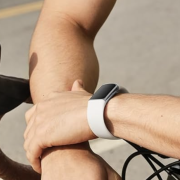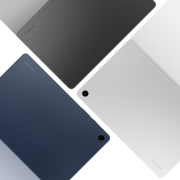
When asked how he would describe Google’s policy on being “open” Eric Schmidt’s response turned instead to describing arch-nemesis Apple’s policies on handling iOS. “It’s easier to understand by opposition,” Schmidt explained as he contrasted the closed nature of Apple’s products. Apps must be developed using Apple’s tools. They must use Apple’s hardware. They in a sense belong to Apple. That’s now Google, was Schmidt’s point.
The Google CEO explained that the company and its products are based around a culture of openness. Argue the logistics of it all you want, but don’t associate the search giant’s motivations with anything like Apple’s “core strategy of closed-ness.” No, Schmidt’s point at today’s TechCrunch (AOLownswhat?) Disrupt was take the inverse of Apple and that is Google. Maybe that’s just corporate posturing, but any amount of closed-ness on Google’s part wouldn’t even hold a candle to how Apple has positioned itself.










Article says “That’s now Google, was Schmidt’s point.” I think you meant “That’s not Google, was Schmidt’s point.”
Hooray for the straw man fallacy.
Look at them they’re even worse!
Answer the question, dipshit. If I want to hear you tattle on your sister I’ll ask you about it.
This passes for discourse. Sigh.
As much as I dislike Apple, they did just allow developer’s to use third party platforms to create apps for the iPhone.
I realize, that yes – this was more out of legal necessity than out of the goodness of their heart due to unfair business practicee suits pending (now dropped from the US and EU). Schmidt has to come up with new material.
By the way, love my EVO.
He did answer the question… not without sending a few shots Apple’s way, but he’s a CEO what can you do!
If you didn’t understand the answer, you should read it again, and again, and again ;-)
@kevin … so they backed down from one of their many terrible policies of restriction because of pressure from the DOJ and suddenly we are supposed to treat them as “Open”? DOn’t forget they still rule their platform and app store with an iron fist. If they don’t want your app to be release, its crushed with little or no explanation.
Yep more open than the restricted APPLE iPhone. You can do anything you want with ANDROID. This is why I’m glad I never bought the iPhone.
Android was originally meant to be open to the end users. It has now become open only to the carriers/manufacturers to close it down to the end user (eg. “The Samsung Fascinate, a Galaxy S Phone, Powered by Verizon”). I will soon be upgrading my CLIQ to the one potential saving grace of Android: The G2. But if it fails to live up to its expectations, and it lets me down like the CLIQ let me down, or like many other phones let other users down, and Gingerbread doesn’t resolve the many other issues plaguing Android… I’m done. I would rather be in Apple’s or Microsoft’s walled gardens, than Verizon’s or Motorola’s, et al.
@Craig: I’m curious, what are these issues that plague android?
^
It’s not really google who is not open. Being open is bitter sweet because it is open to everyone including carriers and manufacturers. If a company wanted to, they could produce an open device that runs on all networks for a fair contract-free price, (think ipod touch vs iphone, and what that 3g radio really must cost apple) but this won’t happen in the near future due to nothing but greed.
It’s the carriers and the manufacturers. They have always been the reason transition to officially sanctioned open technology will be slow. They would rather lock down the systen to nickle and dime you however they can rather than sell a product at a fair price.
Despite this, Android still represents a huge shift from previous operating systems locked down even further than the manufacturers and the carrier. Android is open source for all to view, allowing for the possibility of modification on devices exploited to allow it.
@Jon: I think Craig’s issue is the fact that he got a cliq which is a motoblur ridden locked down phone that may or may not have been rooted. I will agree though that phones shouldn’t have to be rooted in order to load other roms.
Terrible writing.
Sorry man, Google is opening to every s h i t in the running of make money!
@Jon. Fragmentation. Lack of support from carriers/manufacturers. Delay of updates/upgrades. Phones being outdated within a few months of purchase. Confusion to the casual end user as to what Android really is when carriers market the OS as their own (see my example in my previous post). The complete lack of control Google has on its own mobile ecosystem, reputation, and wellbeing. Why they’re leaving it up to the carriers/manufacturers is beyond me. Anyway, I could go on and on.
@Hendrix. Correct. After only a few months of purchasing my phone, for full price to stay out of contract, it was outdated. I had to root and install a custom ROM to get 2.1, which I don’t mind doing. But I’m a geek, not a casual user. The casual CLIQ user, right now, is probably really confused as to why they can’t download Facebook or Twitter on their phone. Or why their friend’s Android has navigation, and theirs doesn’t. And why they can’t play Angry Birds, but they can. That goes for any other user on a phone still stuck on 1.6 or less.
@Craig
Yeah, thats what happens when you buy a lowend phone that is already behind the curve when it is released. The Cliq was terrible, no one on earth would ever say otherwise. Also, you should really only buy high end phones if you want the latest and greatest(not out dated in a few months) anyway. You are blaming Android because you bought a Pentium 3 computer and are pissed that you cant play Crysis! The phones stuck on 1.6 are either a) not capable of running 2.0> due to hardware restrictions or b) are no longer supported by the manufacturer because of issue a).
@Craig, None of these issues you speak of are Android issues.
“Fragmentation. Lack of support from carriers/manufacturers. Delay of updates/upgrades. Phones being outdated within a few months of purchase. Confusion to the casual end user as to what Android really is when carriers market the OS as their own (see my example in my previous post).”
^^ The entire above quote represents a manufacturer issue. Google released something that was open. The carriers grabbed the open source software and installed their own garbage, in my opinion, on top of Android and removed any features that they don’t want their end users to have for free (ex. Tethering). Because of this Garbage that the carriers installed, there will be fragmentation, there will be delays in updates due to compatibility, and because the Android OS is so popular and is available to so many manufacturers, there will be more powerful phones released at a steady interval, which means, yes, your phone will be outdated after a few months.
“The complete lack of control Google has on its own mobile ecosystem, reputation, and wellbeing. Why they’re leaving it up to the carriers/manufacturers is beyond me. Anyway, I could go on and on.”
^^ This should not be expected from Google in the first place. First of all, it is not Google’s reputation that gets hurt by the issues you are having, its the manufacturers. I can’t tell you how many people despised HTC because of the length of time it took them to get senseUI ready for 2.1. But is that is HTC’s rep on the line not Google’s. They leave it to the providers and manufacturers because customer service is not Google’s strong point and they know this. I for one would not want to have to call Google every time I had an issue with my phone. They are such a large company it would take forever to get the issue resolved.
I understand your frustration but don’t blame it on Android. Take a closer look and blame it on the manufacturers with their senseUI, MotoBlur, NinjaBlur, etc.
@Ryan. Not pissed at all. It was a great phone for its time. However, that time should have lasted longer than a few months. But I’m having fun hacking it anyway. It was Motorola’s first Android phone, and it came out just before the DROID. It had very similar hardware specs, and I was a T-Mobile customer, not a Verizon customer. So I figured it was a good deal. It didn’t take long for the DROID to become outdated either. It’s just the pace of mobile technology these days, which is great! However, Motorola and Verizon still continue to support their device. Motorola and T-Mobile on the other hand, is a different story. The CLIQ is perfectly capable of running Froyo.
At any rate, we’re getting off topic. My phone aside, the issues with Android’s supposed “openness” are real and they must be address by Google.
*addressed
Android = Great
Carriers/Manufacturers that force-feed you bullshit UI’s and then delay software upgrades/updates that fix bugs = Horseshit
I agree with Joe…Apple only “opened” up because they were forced to at gunpoint by the DoJ. Apple doesn’t like open-anything. No matter what you criticisms of Google might be, Apple is worse by several orders of magnitude.
Still, Craig’s point about market fragmentation is a valid one. In Google’s attempt to maintain OS openness, they have ceded control to the handset manufacturers and the carriers.Within the context of software development, that is the spirit (and letter) of the GPL and many other open source licenses. But a little reality check may be in order when the handset makers and carriers so bastardize the OS as to defeat the original intent of the license. And that applies to high-end phones, too. I have a Galaxy S (POC) Captivate–fast, big beautiful screen, lots of expandable storage, BUT sideload-crippled and root-bound, with Froyo just a mirage on the distant horizon. Is that really the intent behind Android OS? Somehow I don’t think so. Google isn’t responsible either for Samsung’s total lack of both quality control (GPS, random shutdowns, the list goes on) and their corporate contempt for their customers, or for AT&T and Verizon’s desire to lock up their customers by locking down their phones. Maybe we need a MOAGPL license for these folks. That would be a mother of all GPLs, which would prohibit making a mockery of open source by the manufacturers and carriers–just a thought.
And one more thing. Potential consumers may not make the fine distinction between Android OS and the less than stellar products they pick up at the phone store or read about in the reviews. They may well turn off and say, “I’ll just get an iPhone or a Windows phone, or maybe a Blackberry.” And Android gets the black eye.
While I may be playing devil’s advocate here, but there is a reason why manufacturers lock these phones down even though the software is suppose to be open, and that reason is tech support. It is much easier and cheaper to support (and train support staff for) a product that that has fixed-in-place software than something anyone can put anything on. Granted, this will annoy higher-end, more technically-minded users more, but for the other 90% of the people that will buy and/or use the device, it will make thing a lot more streamlined and easier for both the consumer and the company. While I personally am running a rooted and OC’d Droid 1 myself, and can appreciate having more control over the device I paid for, I can see why manufacturers do this, even though they seem to go a bit overboard at times… Locked bootloaders, ok, I can understand that… block loading apps from untrusted sources, that seems to be stretching it, but I can see their point… replacing the google market with their own creation, that’s going a bit too far in my books.
please i want to support everthing i user this time opera mini and facebook touch privacy please kindly assist me. i am please help me
Apple makes very user friendly apps,
Apple respects privacy by not sending user data without asking user permission
Schmidt wants us to assume google is opposite of apple ?
Yes indeed i think it is currently.
Hmm thats why google mail, google talk and everything core from google is closed source? Oh and where is the bugtracker for google docs?
I echo a lot of the sentiments above regarding it not being Google’s fault. Updates, fragmentation, “support” are all within the carrier’s domain, not Google’s. They don’t enforce how Android should look on devices PRECISELY because it is open. It’s open for carriers to do what they want. As said above, it doesn’t tarnish Google’s image, rather the carriers, no matter how much you want to believe it should tarnish Google. We had an opportunity to rally behind a pure Google experience (i.e. Nexus One), but people spoke with their wallets. They chose NOT to get behind the N1, resulting in paltry sales and poor support. Instead, people jumped on devices like the DInc and the Evo, demonstrating they’d rather have the carrier driven device rather than the Google one. And now you sit here complaining about fragmentation, delays in updates, yadda, yadda, yadda?! As people continue to buy carrier-altered phones, it will continue to look like this. Hopefully, with Gingerbread, Google will centralize some of the core apps to the Market, which will reduce the kinds of restrictions we see today. However, as long as you have carriers in cahoots with manufacturers (VZW & Motorola), we’ll have locked down phones, irrespective of what OS they’re running.
i fucking hate apple
@Craig & Tigerpaw
The whole point you are missing is that, yes, some phones are screwed up by the carriers… BUT you have the CHOICE to buy them or not! Fragmentation really means choice! Don’t want Bing replacing Google search on your phone, buy another one, go to another carrier… Because of openness with Android, you can choose from several carriers and dozens of phones with a variety of options… Apple: 1 carrier; 1 phone; 1 os; 1 market; very little personal customization (at this time in the US.) One iPhone is pretty much like every other iPhone on the planet! “i” very definitly does not stand for individualization, perhaps it stands for indistinguishable? :-)
The shmucks running the carriers need to be shot for crimes against humanity. What they do is the equivalent of e.g. having the utility companies dictate you what food you cook or when you take a hot shower with their electricity and water. Whatever and whenever the F*ck I like!!! Where is your outrage people? Rise up!!!
@GadgetQueen,
Au contraire, my friend. I DO indeed get the CHOICE issue. And thanks, by the way, for framing the discussion very well.
But extensive choice is both a strength AND a weakness in the business model for Android-powered phones. I love the Android experience (OK, not so much the problems). But with only one model per year (with storage variants), Apple’s iPhone tends to be better tested, generally speaking, than a number of Android phones and better supported. Just look at the postings about problems with x, y, and z here on phandroid alone. Yes, there was that whole death grip issue with the iPhone 4, but after an initial PR stumble, Apple said, “OK, barkeep, cases for everyone; we’re buying.” Android handset makers could take a lesson from that.
When you shell out big bucks for a smartphone, you have a reasonable expectation that the thing will work as expected–texting, phone calls, GPS, wi-fi, apps, etc. In the case of Android phones, some makers/carriers hit the mark better than others.
Having had good experience with AT&T in the past (yes, I actually have), I expected the same thing this time. AT&T has in fact been helpful, but Samsung has not. And the problems showed up too late for the buyers’ remorse no-questions-asked return period. And the replacement handset from Samsung has the same dead GPS and a disturbing tendency to not receive voice calls even when it appears to be up and running.
So, the buyer has to do a lot more research about the maker before getting an Android smartphone than before getting an iPhone. I know, caveat emptor, my mistake. I presumed that the manufacturer had done the QA. But it’s still more than a little galling to think that the makers are popping these Android handsets out like they’re running some kind of cell phone meth lab. And, yes, speaking to others, it is hurting Android’s reputation. I have acquaintances who are looking at iPhones exactly because one phone, one OS, one steady release pace makes good sense in terms of quality, both real and perceived, especially as they hear people singing the “Android Blues.”
Quite aside from the handsets themselves, there is the problem of all those review comments on the Android Market for various apps: Doesn’t work on my Droid X, doesn’t work on my Evo 4g, worked on my HTC this but not on my new Motorola that, etc. The proliferation of choices means, unfortunately, that there seem to be too many of these sorts of problems at the app level across various handsets. Yes, some of those are from people who don’t read the notices like “for the Captivate only,” “needs ROOT,” etc., but there are also many legitimate concerns about app compatibility.
Do I think the Android wave will weather all these growing pains? I think so; I certainly hope so. But the huge upticks in buying Android phones will also certainly be negatively affected by the sometimes shoddy work of even big names like Samsung.
Sorry this post is so long. What do you think, GadgetQueen? Just wait for the bad players to drop off the map? Push in various ways?
Ouch! I knew that was a long post, but WOW!
@Gengar, you’re right. Tech support is a very legitimate concern. So also is the tendency for the technologically challenged to go do things like rooting and modding their phones without having a clue about what may result. Still, sigh….